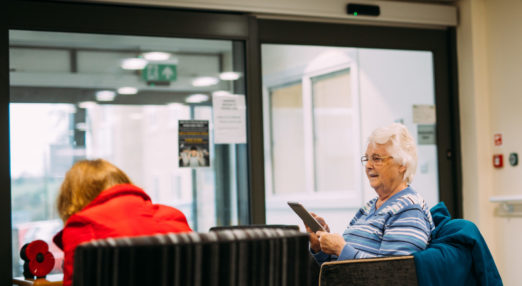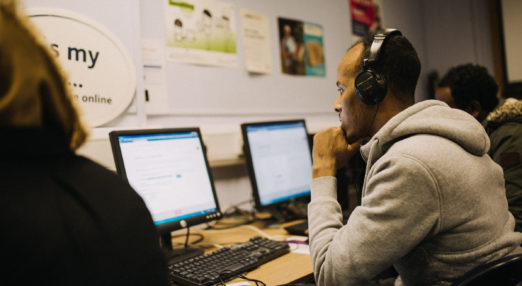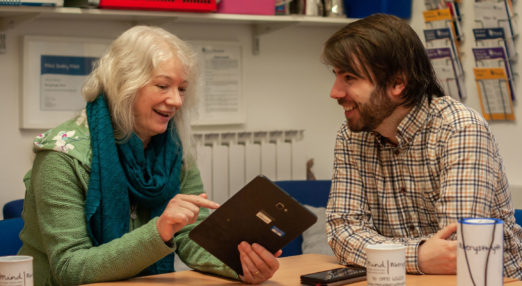Accessing online services
In the UK, 27% (c.14.0 million) still have low digital capability. (Lloyds, 2022).
75% of people want essential services to be accessible both online and offline (Demos, 2021). However, 10 million people in the UK cannot get online independently (Lloyds, 2021). These people are more likely to face social and economic exclusion, including unemployment, poverty, low literacy and disability.
Many of the groups who are more likely to interact with public services, are also more likely to be without the digital skills needed for everyday life.
Socially excluded groups tend to be the heaviest users of many government services, yet they are also less likely to be able to use online channels; 53% of those with very low digital skills are benefit claimants (as measured by the Lloyds Bank UK Consumer Digital Index).
How are we affecting change?
Find out more about how we are supporting communities and our network.



